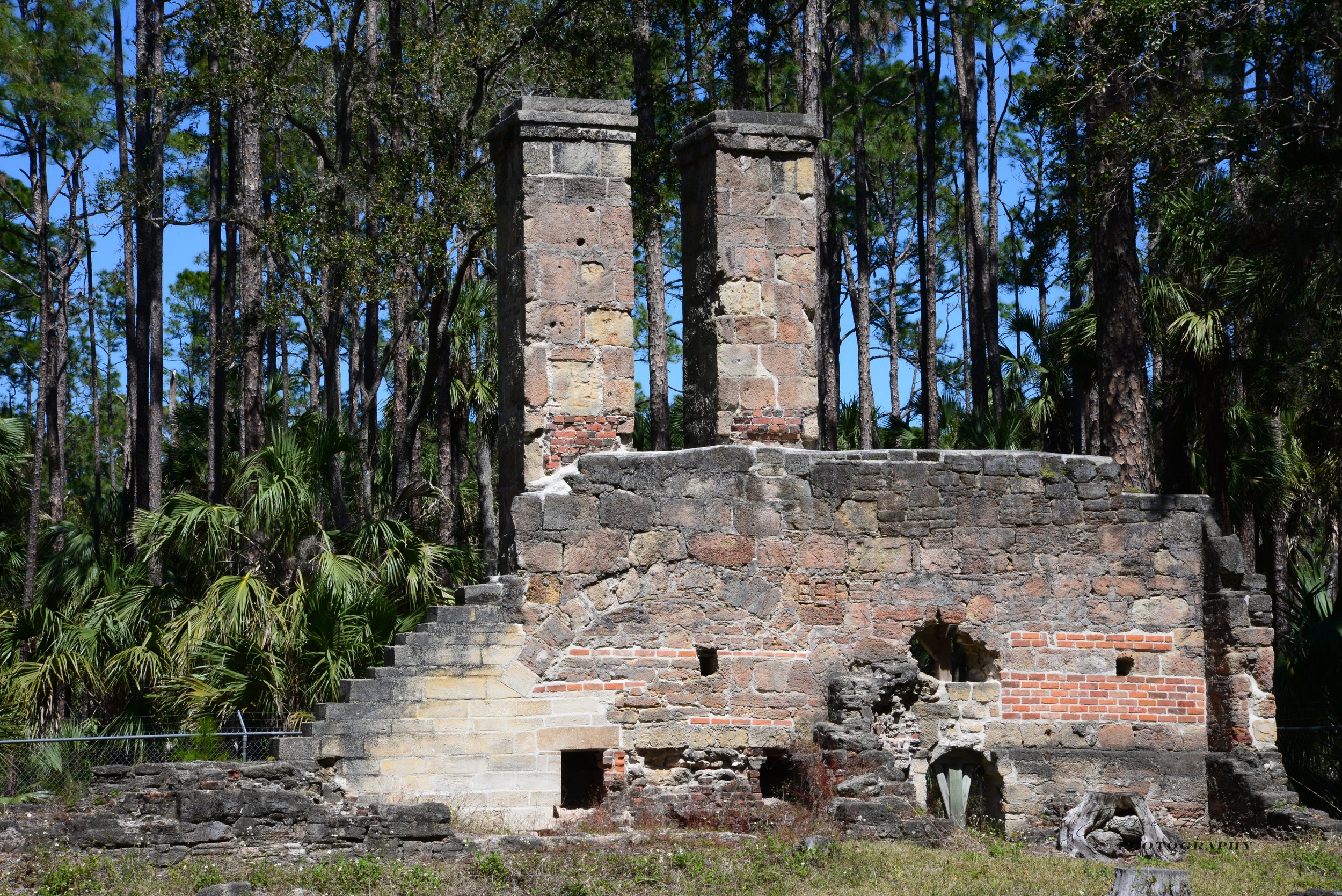
Dummett Sugar Mill
The early years of the Territorial Period, or the period after Florida was ceded by Spain to the United States in 1821, saw and influx of people coming to Florida seeking their fortunes by planting and processing sugarcane. Although cotton was the main cash crop during the Second Spanish Period (1783-1821), sugar and rum production attracted many speculators based on their knowledge that many of the fortunes in England were made planting and processing sugarcane in the West Indies, mainly Barbados and Jamaica.
In 1804, one time ower of Dunlawton Sugar Mill John Bunch and John Addison, received a land grant of 2,175 acres which were part of what originally had been John Moultrie’s Rosetta Plantation on the West side of the Tomoka Basin. The Rosetta Plantation was established in 1770 by Florida's Liutenant Governor John Moultrie. When the British ceded Florida back to the Spanish in 1783, neglect and fires destroyed the plantation completely. After living on it for 20 years, in 1825 Bunch sold the plantation and his slaves to Col. Thomas H. Dummett (1775-1839) who was one of the first speculators in the area.
Col. Dummett was a former officer in the British Marines whoo became a planter. He built the first large scale sugar processing operation South of St. Augustine and was the first to use steam-powered cane crushing machinery when he brought a sugar boiler to this plantation from Barbados which was installed by Reuben Loring (1787-1840) in 1825.
The Dummett Plantation came to a tragic end when the Second Seminole War broke out in 1835. Dummett moved his family to St. Augustine for safety where he bought a house at the corner of St. George and St. Francis streets, now the St. Francis Inn. His daughter Anna later converted the family home to a lodging establishment. Col. Thomas Dummett passed away in 1839 in St. Augustine at the age of 64. He was buried in the Huguenot Cemetery there.
The Dummett Plantation is located on Old Dixie Highway about two miles north of the entrance to Tomoka State Park.
